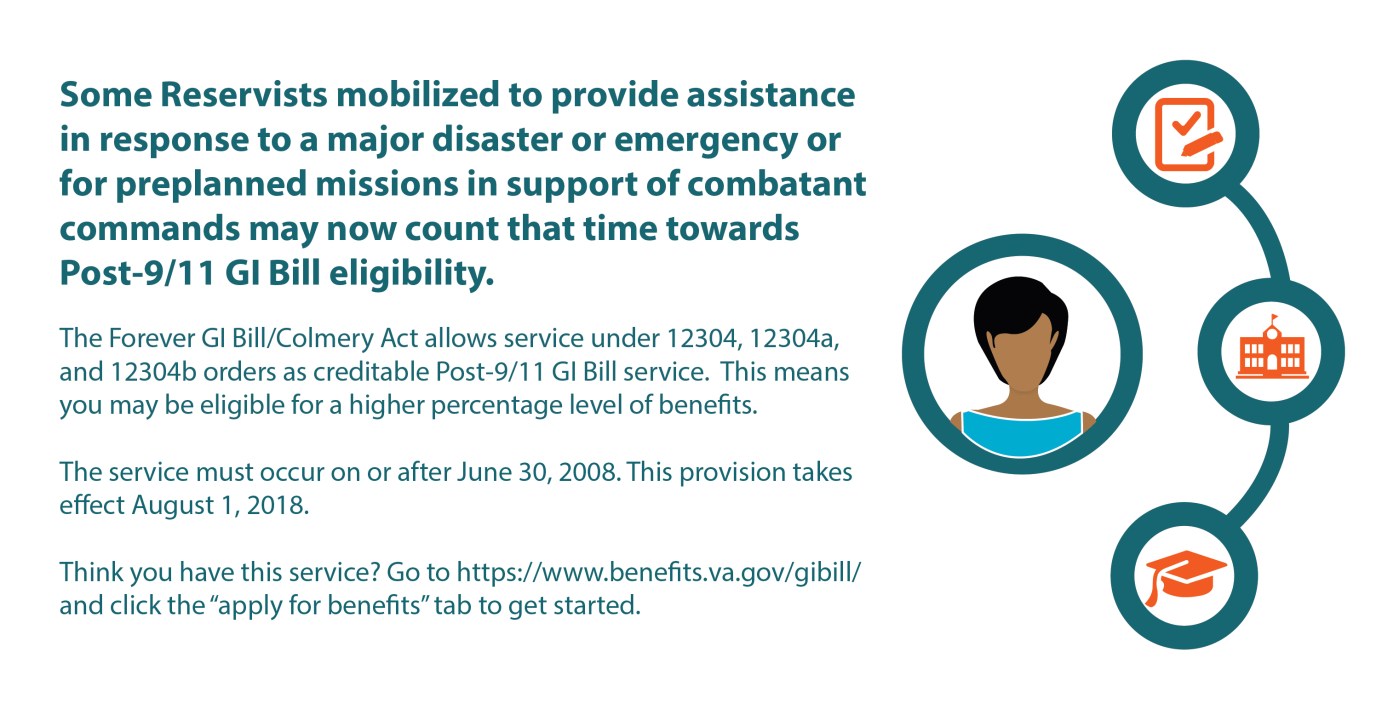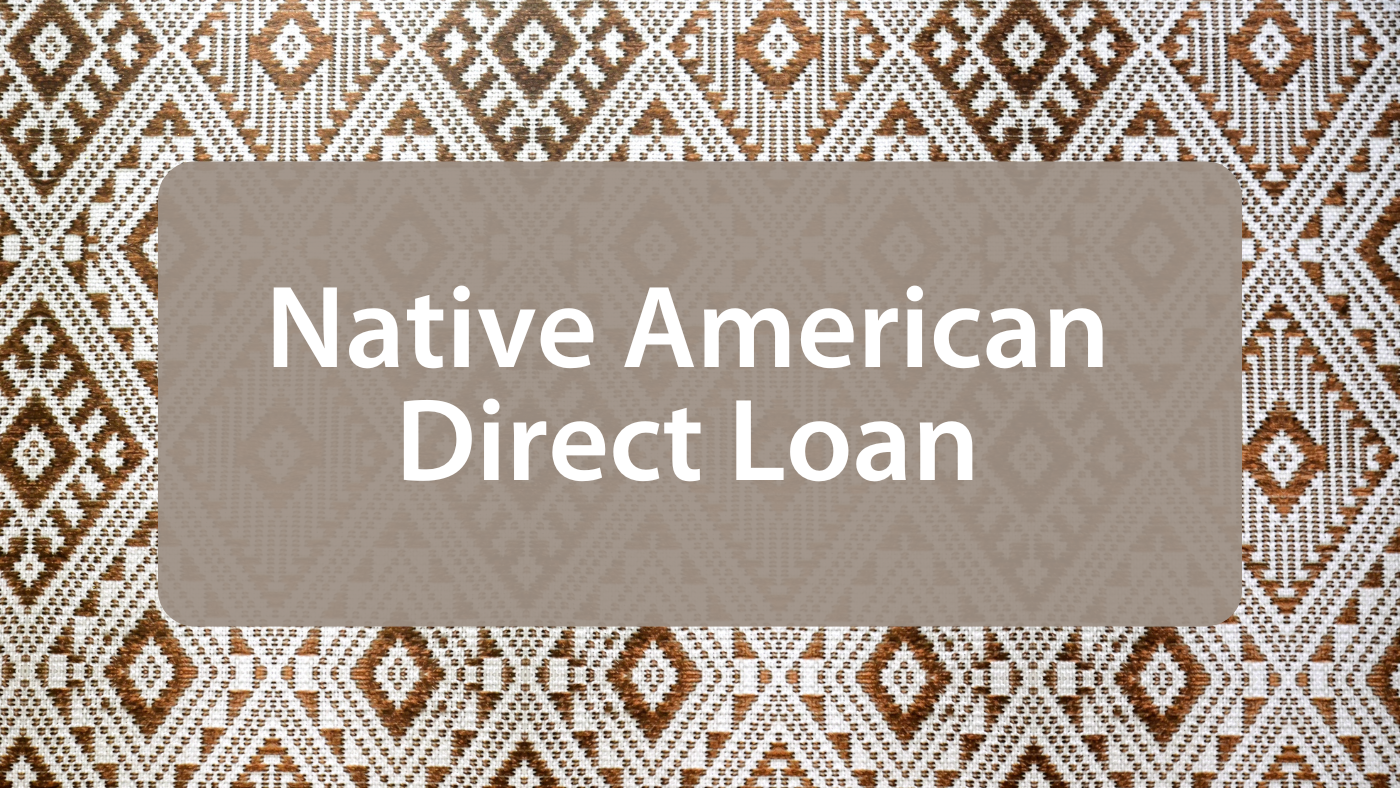Reservists called up for active duty will soon qualify for increased Post-9/11 GI Bill education benefits if they meet certain requirements.
The Harry W. Colmery Veterans Education Assistance Act, also known as the “Forever GI Bill,” was passed by Congress and signed into law last August. The Forever GI Bill expands education benefits for some members of the Reserve effective August 1, 2018.
VA may now consider more reservist service as qualifying time towards eligibility for the Post-9/11 GI Bill, including:
* Major disasters or emergencies, as authorized under section 12304a of title 10, U.S. Code
* Pre-planned missions of up to 365 days in support of combatant commands, as authorized under section 12304b of title 10, U.S. Code
The service must occur on or after June 30, 2008. The benefits are payable for a course of education beginning on or after August 1, 2018.
It’s important to note that serving time under title 10, U.S.C. 12304a or 12304b doesn’t automatically qualify for Post-9/11 GI Bill benefits. The Post-9/11 GI Bill has a minimum service requirement of at least 90 days, although periods of service for separate missions can be combined to meet the 90-day threshold.
Here are some examples to help you understand this provision of the Forever GI Bill:
A reservist was called up to active duty and served in Afghanistan for one year in 2002. Then he or she was called up for three months in 2004, two months in 2005, and three months in 2010 under title 10, U.S. Code 12304a.
Prior to August 1, 2018, those three months under 12304a were not creditable active duty service, so the person was eligible for the 60 percent tier with 17 months of creditable service. Now, thanks to this new provision of the Forever GI Bill/Colmery Act, the three months of service under title 10, U.S. Code 12304a can be added. The reservist now has 20 months of qualifying service and would be eligible for the 70 percent tier.
Or, let’s say a reservist had only 90 days of service under title 10, U.S. Code 12304a. He or she wouldn’t have qualified at all. With this law change, the reservist now has qualifying active duty and would be eligible for the 40 percent tier.
If you haven’t explored your options to use your education benefits, you can start by visiting the GI Bill Comparison tool. You can see how to maximize your education value and look up the college, training school, or even apprenticeship program you’re interested in attending. You can also see how much your GI Bill benefits will cover and if you’d have any out of pocket expenses.
If you have any questions, please call 1–888-GI-BILL-1 (1–888–442–4551). If you use the Telecommunications Device for the Deaf (TDD), the Federal number is 711. You can also visit the Forever GI Bill page.
As always, be sure to follow us on Facebook and Twitter at @VAVetBenefits. These give you quick and helpful updates.
Veterans Benefits Administration’s Education Service delivers GI Bill® education benefits to Veterans, service members, and their families. Since 1944, the GI Bill has helped millions of Veterans pay for college, graduate school, and training programs.
Topics in this story
More Stories
In this news post, we explore the various options designed to keep you in your home, offering hope and possible solutions for when/if you experience financial hardship.
Vietnam Veteran David Chee is among the many Native American Veterans and service members who have dedicated their lives to military service. Chee proudly served with the Army's 82nd Airborne, parachuting into the jungles of Vietnam. Chee now owns a home he purchased on Navajo tribal lands with the help of the VA Native American Direct Loan.
For Veterans, donating to charities—especially those that support fellow service members—feels like a meaningful way to give back to the community. However, Veterans and their loved ones must remain vigilant and learn to protect themselves from charity scams.






